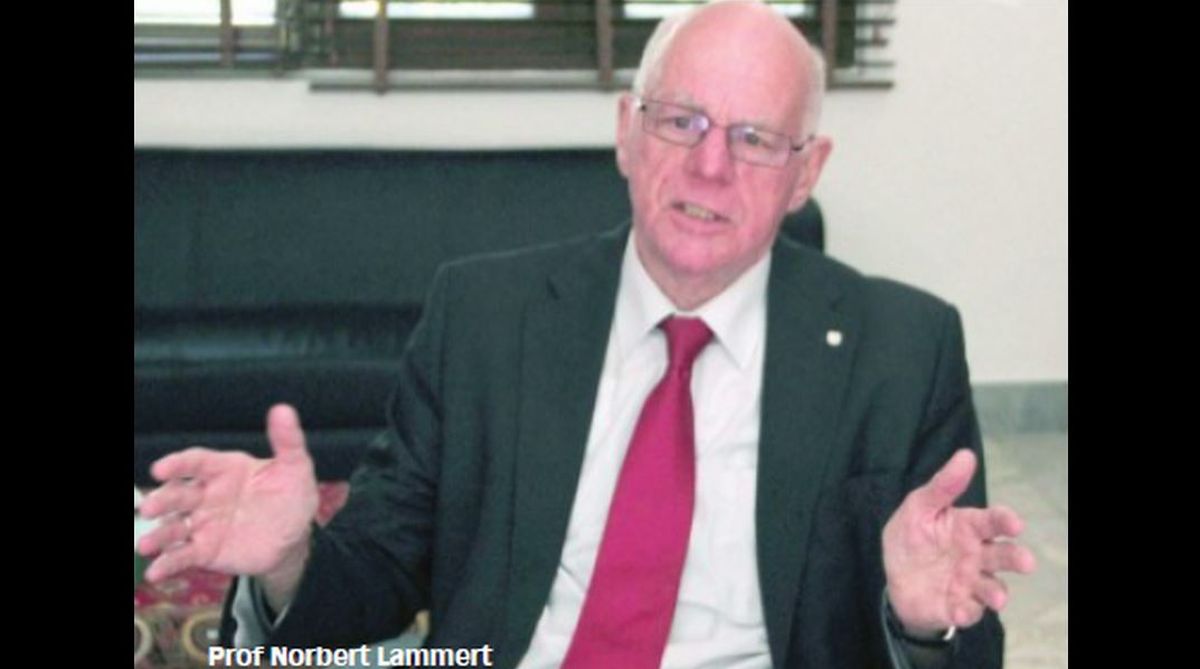BSF intercepts Bangladeshi woman crossing border
Amid rising tensions in Bangladesh, reports suggest that some individuals are attempting to cross the India-Bangladesh border illegally, seeking to settle in India.
Dr. Lammert, who was President of the German Parliament from 2005 to 2017, is now the Chairman of the Konrad-Adenauer-Stiftung (KAS), a German political foundation that runs various programmes in over 100 countries, including India.

Prof Norbert Lammert
India has a strong case, along with other G-4 countries, to become a permanent member of the United Nations Security Council, which does not represent current day realities, according to Prof Norbert Lammert, former President of the German Parliament (Bundestag).
“India and Germany share the conviction that the system of the UN does not represent the global situation as it is since decades…so it would make sense and would not only be in the interest of these four countries (India, Germany, Japan and Brazil) but in the interest of the purpose of UN to find a more representative format for expressing the political, economic and cultural diversity of the world we live in,’’ he said in an interview to The Statesman.
Dr. Lammert, who was President of the German Parliament from 2005 to 2017, is now the Chairman of the Konrad-Adenauer-Stiftung (KAS), a German political foundation that runs various programmes in over 100 countries, including India. He is currently in India to meet Indian political leaders and opinion-makers as also to participate in the golden jubilee celebrations of KAS office here.
Advertisement
Hailing India as “the oldest and still one of the few serious democracies in Asia”, he said this country represented one of the biggest populations across the globe. “This makes India a natural partner for any other democracy interested in cooperating internationally,’’ he added. Germany, he said, has always used India’s democratic credentials to exchange with it views on dealing with the minorities, expectations of the electorate, significance of ethnic and religious groups and understanding of the proper relationship between democracies, including openness and preparedness to accept critical remarks.
Asked about Indo-German relations, Dr Lammert pointed out that the two countries enjoy strategic relationship. “This makes formally clear that the relationship is a significant one and well-understood result of our respective positions in our respective regions.’’ He said neither Germany nor India was just any country, given the role the two countries play. ‘’This makes this relationship not only important for the two countries themselves but has implications beyond this bilateral relationship.’’
Asked for his view on China’s ambitious Belt and Road Initiative (BRI), the veteran German leader described it as a “remarkable initiative”. He said China’s BRI was obviously in its own interest but its partner countries would have to evaluate under which conditions they should participate in this strategic Chinese approach.
Asked what would be his suggestion to India which has opposed BRI on the ground that its flagship project, China-Pakistan Economic Corridor (CPEC) runs through Indian territory, Lammert said he did not see any necessity to advise Indian politicians on how they should identify their own interests. “t is a Chinese initiative and it is certainly legitimate to develop such a strategy but it is as legitimate for any other country directly or indirectly affected to follow its own interest,’’ he added.
Asked to elaborate on KAS’s plans in India, he said the institution would in principle keep and develop activities like strengthening networks with parliamentarians, parties, ministries, chambers of commerce and judicial bodies.
“Democracies in different continents should cooperate even more as they have done in the past and not only on a bilateral basis and this is a point we will develop with our partners here,’’ he added.
Advertisement